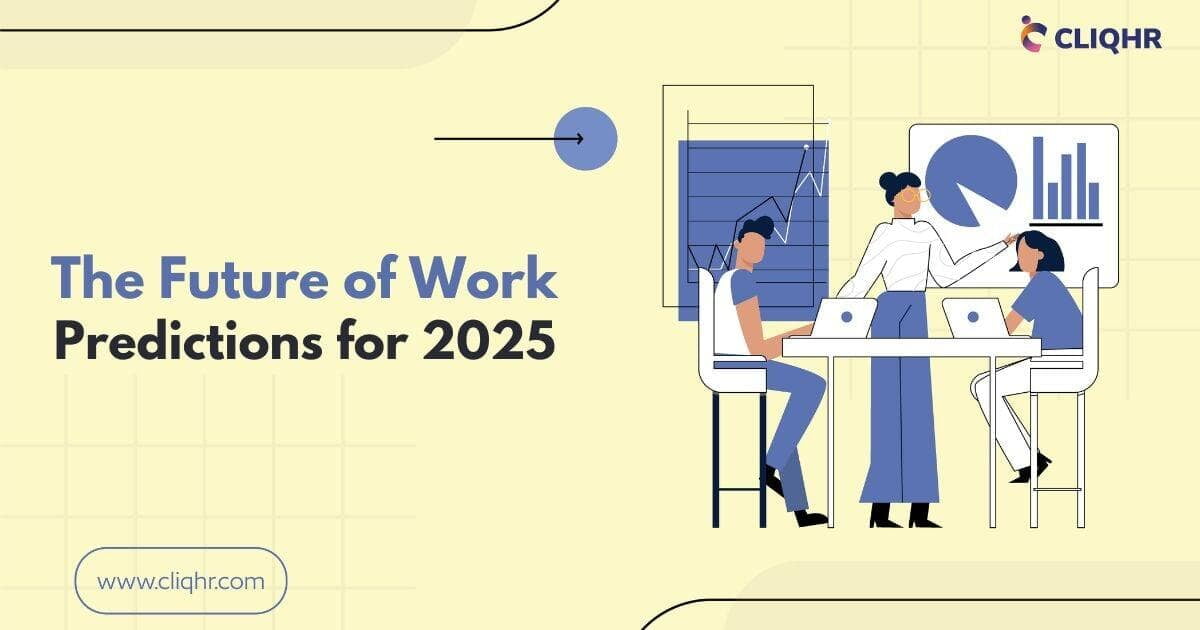
As we move closer to 2025, the landscape of work is evolving at an unprecedented pace. Technology, social shifts, and economic changes are reshaping industries and creating new paradigms for how, where, and why we work. Here’s a look at some key predictions for the future of work in 2025 and how organizations and employees alike can prepare for what’s next.
1. Remote and Hybrid Work Models Are Here to Stay
The COVID-19 pandemic accelerated the shift towards remote work, and it’s clear that this trend is not going anywhere. By 2025, it's predicted that hybrid work—where employees split their time between working remotely and in the office—will become the norm across many industries. With advanced communication tools and collaboration platforms, companies are more equipped to support remote teams, offering flexibility while maintaining productivity.
Impact on Employees:
- Greater work-life balance with the option to work from home.
- A demand for digital communication skills as the primary mode of interaction.
Impact on Employers:
- Need to invest in cybersecurity and virtual collaboration tools.
- Flexibility in hiring talent from anywhere in the world, widening the talent pool.
2. Automation and AI Will Redefine Job Roles
Automation is poised to transform industries, from manufacturing to service sectors, as more repetitive tasks are taken over by machines and AI-powered systems. In 2025, this technology will move beyond simple task automation to more complex roles like customer service, data analysis, and even content generation.
Impact on Employees:
- Upskilling and reskilling will be essential as some jobs are automated, while others require new skills.
- AI-enhanced tools will allow workers to focus on more creative and strategic tasks.
Impact on Employers:
- Companies will need to foster a culture of continuous learning to keep employees competitive.
- Businesses will also need to invest in AI technology to stay relevant and competitive in their industries.
3. The Gig Economy Will Continue to Grow
The gig economy, characterized by freelance, contract, and part-time work, is already a significant part of the workforce. By 2025, it will grow even further, especially as more people seek flexible work arrangements and organizations look for specialized talent without long-term commitments. Digital platforms that connect freelancers with employers will become more sophisticated, offering seamless opportunities for both parties.
Impact on Employees:
- More workers will enjoy the freedom to choose their projects, manage their schedules, and work from anywhere.
- However, they may face challenges like lack of job security, benefits, and stable income.
Impact on Employers:
- The ability to scale up or down with flexible staffing will benefit businesses, but managing a large pool of freelancers will require better systems and policies.
- A rise in project-based hiring could change the structure of organizations.
4. Focus on Employee Well-being and Mental Health
Mental health in the workplace has gained significant attention over recent years. By 2025, employers will put an even stronger emphasis on employee well-being, offering mental health programs, work-life balance initiatives, and wellness perks as part of their benefits packages. With burnout and stress affecting many professionals, businesses will need to prioritize well-being to maintain a productive and engaged workforce.
Impact on Employees:
- Expect to see more comprehensive wellness packages, including mental health support, flexible hours, and workplace well-being programs.
Impact on Employers:
- Investing in employee health will lead to increased productivity, lower turnover rates, and stronger company culture.
5. Diversity, Equity, and Inclusion (DEI) Initiatives Will Be Crucial
Diversity and inclusion in the workplace will continue to be a major focus area as businesses recognize that diverse teams drive innovation and performance. By 2025, companies will take even greater steps toward building diverse teams, ensuring equitable opportunities, and fostering inclusive work environments.
Impact on Employees:
- Employees will expect more from their employers when it comes to DEI, from diverse leadership to equitable pay and opportunities.
Impact on Employers:
- Businesses will need to be proactive about DEI initiatives, offering unconscious bias training, mentorship programs, and ensuring fair hiring practices.
6. Lifelong Learning Will Be the Norm
The rapid pace of technological and social change means that the skills required for today's jobs may not be the same in the future. By 2025, lifelong learning will be a critical part of every employee's career. Employees will need to continuously update their skills to stay competitive, while employers will have to provide opportunities for growth and development.
Impact on Employees:
- More individuals will pursue micro-credentials, certifications, and online learning to stay ahead of trends.
Impact on Employers:
- Providing access to training and development programs will be key to retaining top talent and fostering innovation.
Also read: Body Language Tips for Job Interviews
The future of work in 2025 will be defined by flexibility, technological advancement, and a deeper focus on employee well-being. Both employees and employers will need to adapt to new models of working, with a strong emphasis on continuous learning, inclusivity, and mental health. For those who embrace these changes, the opportunities will be immense—unlocking new levels of productivity, creativity, and job satisfaction.
